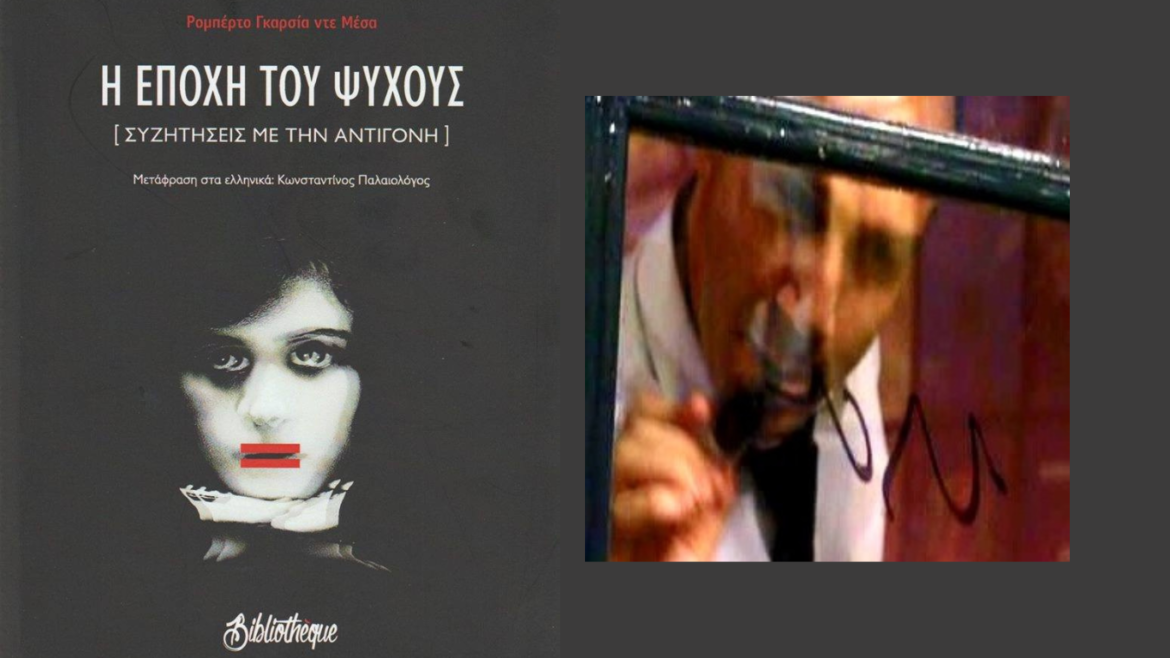Roberto García de Mesa is a Spanish poet, playwright, dramaturge, narrator, essayist, philologist, exhibition curator, stage director, visual artist and musician. He holds a licentiate in Law and Hispanic Philology, and a doctoral degree in Hispanic Philology. He has published more than 70 books of poetry, theater, short narrative, essays, conversations, paintings and critical editions, and 5 cds with his musical compositions. His works have been translated into English, Greek, Romanian, French, Italian, German, Slovenian and Portuguese, and have appeared in magazines of 19 countries.
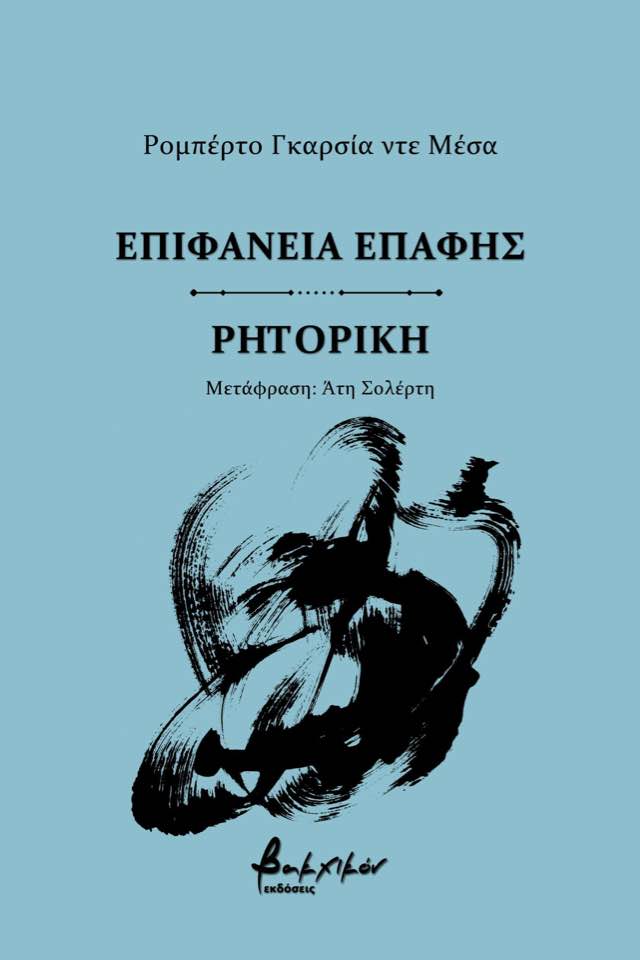
In Greece, García de Mesa has published the following books: Hamlet Post Scriptum (theatre, Hamlet Post Scriptum, translation by Ati Solerti, Athens, Vakxikon, 2017), Razón y canibalismo (poetry, Reason and Cannibalism, translation by Vassilis Laliotis, Athens, Bibliothèque, 2017), La edad del frío. Conversaciones con Antígona (theatre, Age of the Cold. Conversations with Antigone, bilingual edition, translation by Konstantinos Paleologos, Athens, Bibliothèque, 2018), Superficie de contacto. Retórica (poetry, Contact Surface. Rhetoric, translation by Ati Solerti, Athens, Vakxikon, 2018), Los cuerpos remotos (poetry, The Remote Bodies, translation by Ifigenia Ntoumi, Athens, Bibliothèque, 2019), Sobre la naturaleza de la fragilidad (poetry, On the Nature of Fragility, translation by Ifigenia Ntoumi, Thessaloniki, Romi, 2021), Obras de teatro (selección) (theatre, Theatrical Works (selection), translation by Ifigenia Ntoumi, Thessaloniki, Romi, 2021), Cinco ensayos sobre poesía escénica (ensayos, Five Essays About Scenic Poetry, translation by Ifigenia Ntoumi, Thessaloniki, Romi, 2022) and La última actuación (flash fiction, The Last Performance, Editing and translation by Κωνσταντίνος Παλαιολόγος and translation team by Όλγα Αναστασιάδου, Χριστίνα Μπατσίλα, Κωνσταντίνος Παλαιολόγος, Χρύσα Παπανικολάου, Ματθίλδη Σιμχά and Σταύρος Χατζής, Thessaloniki, Romi, 2023).
So, the time has come to learn more about Roberto García de Mesa and his work.

– Roberto, you are a writer, theater director, poet, composer and professor of Spanish Language and Literature at two Spanish Universities (associate professor at the ULPGC and tutor at UNED). Which of these occupations do you enjoy the most?
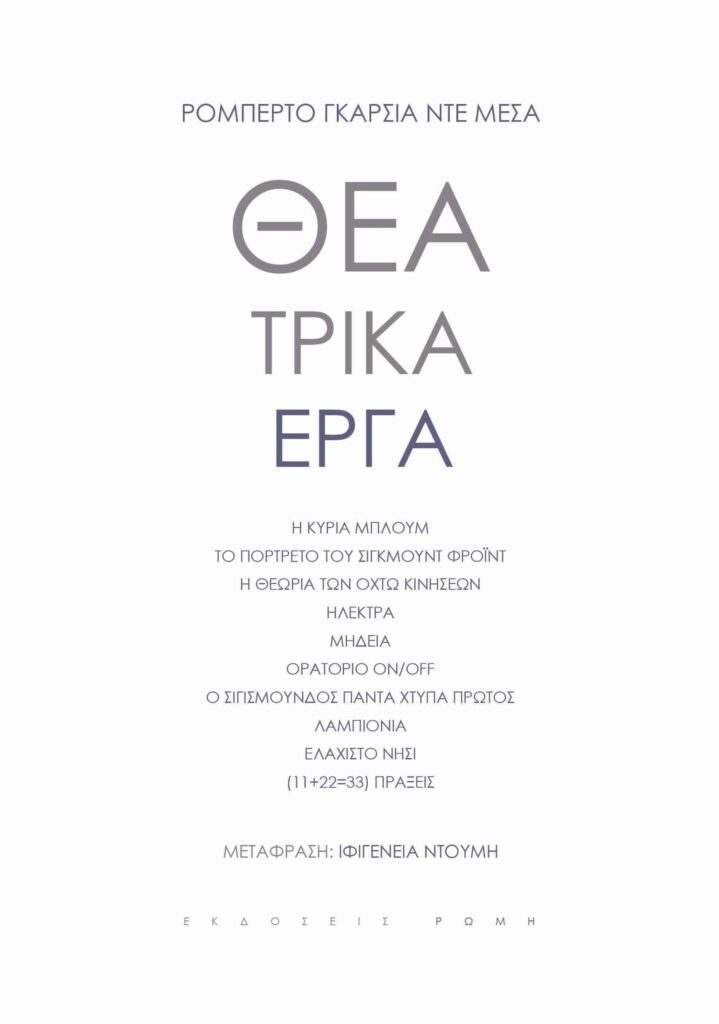
– I feel true passion for the knowledge of the humanities. Of course, in all these occupations I enjoy a lot. Each one has its moment of maximum attention. However, of course, poetry (or poetic thought) is my center and that encompasses everything: literary, scenic, musical creation, even teaching…
– You have to be constantly creative to be able to perform all these tasks and with such quality. So where do you get all this energy?
– Well. I don’t know if it will have that quality you say, but I appreciate your generosity. I believe that the energy to face life is found in the passion that you have in what you do. If that passion is lost, everything ends.
– Your work is expressed in many ways and through different channels. What keeps you motivated?
– In addition to the passion, the need to want to do it and, especially, the feeling of starting over and over again. Sometimes I have even boycotted myself if I start to distance myself from that feeling. In fact, I confess that despite having published more than seventy books, I have the impression that this party has only just begun and that I still have a lot to do and say.
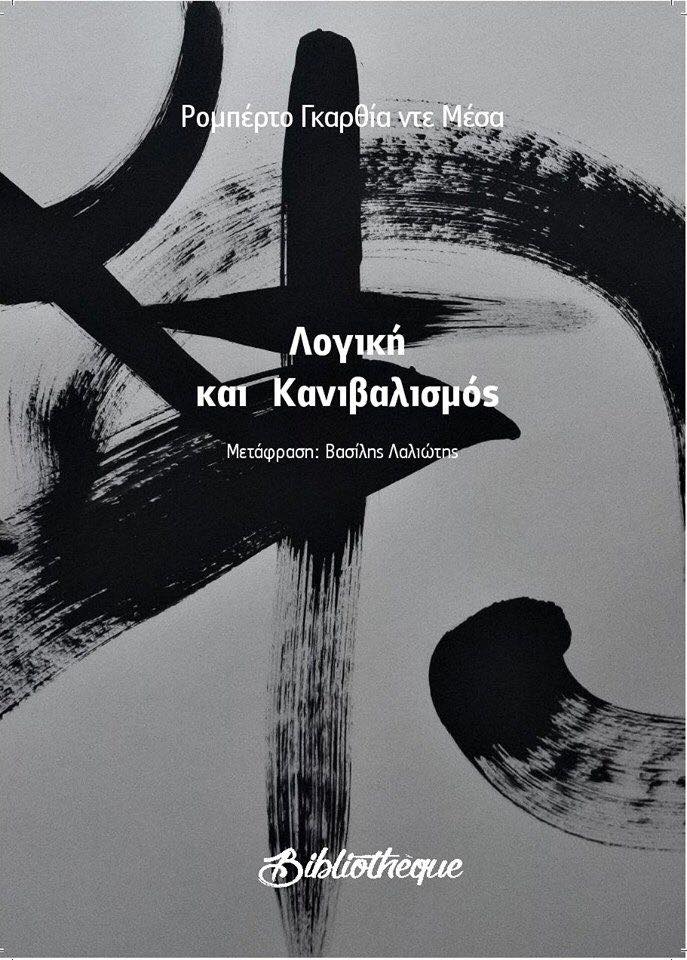
– What do you like most about your job?
– Being able to work on human nature, in its various aspects. It is what literature has. It is an infinite journey of knowledge that always accompanies me. And that is priceless.
– How do you get inspired by the topics you deal with? Is it something you read, like literature or philosophy? Is it about the big things happening around the world?
– We live in an exciting time. And every creative process involves research. I observe the world, I investigate the traditions, the universal themes, I become obsessed with certain issues of human nature, the physical world or the metaphysical, then I forget everything, start again freely and let my most irrational concerns flow. I am especially interested in topics that are valid for all times.
– Through your work, are you trying to express your inner self or send a message to the world?
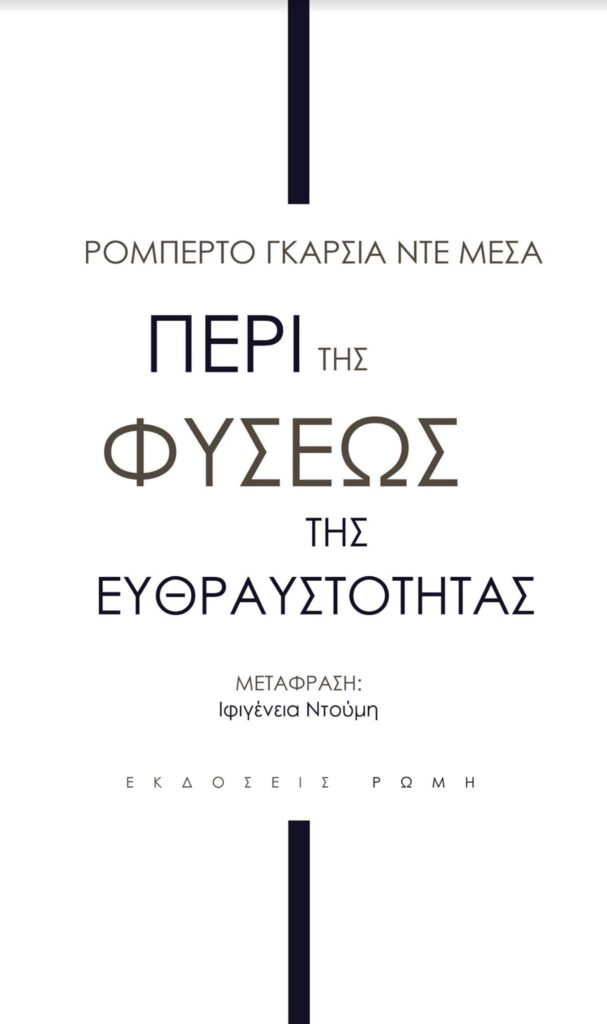
– I think both. Even if it is in a more objective way, you are also expressing your inner self. We are thinking and emotional beings who reflect in private, but also in front of or with the world. When we approach another human being or act in a certain way, we are sending messages. It is unavoidable. Another thing is that a deep and effective communication is established in a world with as much information as today, with so much “infoxication”. It’s hard, but sometimes it happens and it’s very beautiful.
– You have published more than 70 books, have been translated into 8 languages and 9 of your books into Greek. Fragility, the body, freedom, fears, criticism of power, feminism, the metaliterary, the irrational, the metaphysical are some of the issues that you address in your works. So, from that perspective, what do you think is the most important vulnerability in our society today?
– We are very vulnerable, we could already experience it with the COVID-19 pandemic. We even believe that democracies can handle everything and we are seeing that they are going backwards in the face of more authoritarian models. One of the things that is changing the most is the almost sacred idea of freedom in the West. With the new technologies we have given up so much of our freedom in exchange for the use of a mobile application, for example, that the new generations no longer give it the importance of yesteryear, they see it as something normal.
The most important vulnerability is that of our planet, the place where we live, and this is already affecting us; we must stop consumption urgently. Hunger, poverty, the unequal distribution of wealth in the world and deficiencies in health are also essential problems that humanity has not been able to solve. And, of course, equality between women and men is an issue that affects us all; important advances have been carried out in the world to achieve it, but, of course, much remains to be done. Another huge issue of our time is how information is managed and how history is remembered. We are gaining more superfluous knowledge and losing really deep and important knowledge. This will undoubtedly cause us to repeat the mistakes of our past history because we will not have learned anything.
– You have visited Greece many times and I know that you are interested in our country. So what do you like the most about it?
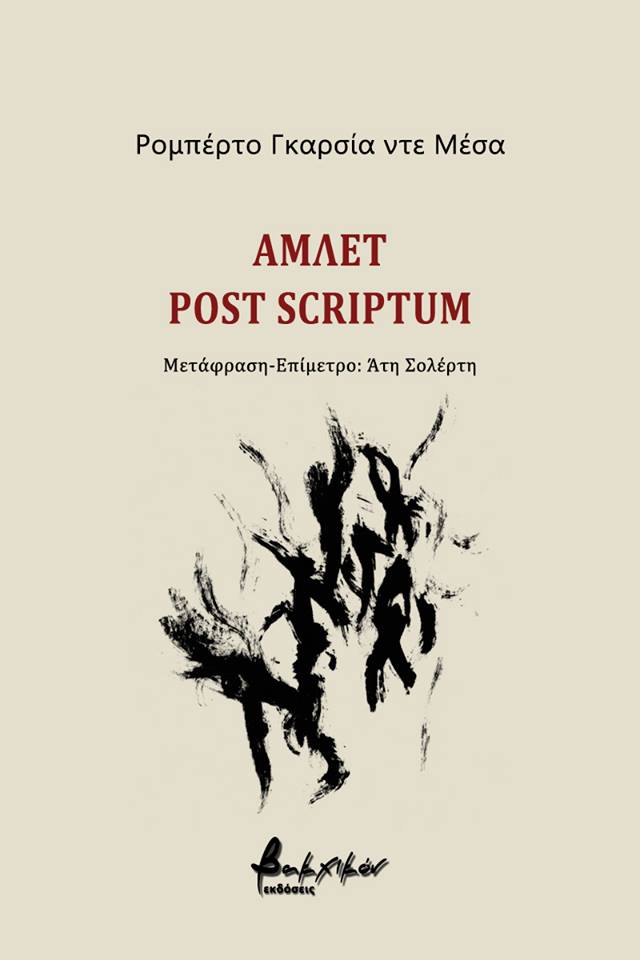
– What I like most about Greece is its people. I have met people that I admire a lot. Throughout its history, the Greek people have suffered too much, but they have always found a way to recover or cope with adversity, despite wars, dictatorships, political corruption, poverty, its fragile health system, etc. Despite all this, the Greeks take refuge in poetry, music, theater, in their gastronomy, in their history, in love, in the landscape, in irony, in sensitivity, in friendship…
– Through our conversations, I have seen that you love your homeland, Tenerife, very much. What would you recommend to a visitor visiting Tenerife for the first time to see and explore?
– The Canary Islands also have many special qualities. Each one has very different characteristics. Its people are usually very friendly and calm. They are Atlantic volcanic islands and the geography is somewhat different from the Greek. I would advise any visitor to get in touch with the Canarian people, to rent a car and take a tour of Tenerife or any other island. You ask me about Tenerife and I would tell you that it is like a miniature continent, it has microclimates, which means that in a short space we have different landscapes and temperatures. I would tell that visitor not to forget going to the Teide volcano, 3715 meters, it is an exciting experience, from another world; also, to bathe in the beaches of the island; don’t miss the forests of Anaga and our gastronomy, it is not as sophisticated as the Greek, but it is very tasty; to visit the cities of La Laguna, Santa Cruz de Tenerife and Puerto de la Cruz, or towns like Icod de los Vinos, Güímar, La Orotava, Los Gigantes, Garachico, etc.
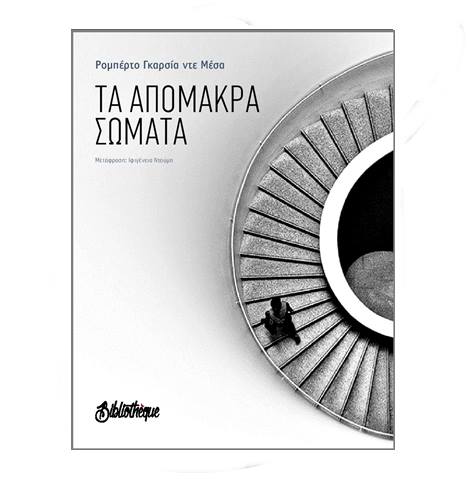
On the other hand, one of the best qualities of these islands is their temperature, they say that here there is an “eternal spring” all year round. Of course, on Teide the temperature drops a lot at night and La Laguna is very humid, in addition you can see the difference between the north, which is more leafy, and the south, which is more desert. Despite this, temperature changes are not as abrupt as in other places on the planet. And that means that a lot of tourism comes from northern Europe, for example, at the end of the year. Of course, like any other place in the world, we also have many problems: economic crises, inflation, inequalities, the difficulties of insularity, problems with waiting lists in hospitals, etc.
– Are you working on any new projects these days? We would also like to know if you plan to visit Greece soon.
– Yes. I’m working on some articles and books, as well as several plays. I hope that in the coming years we can see the fruits of this effort. This year I was in Greece for a month, in February; I would love to return, of course. I hope it’s soon.
Roberto García de Mesa on the internet
Stay connected and find out more about Roberto García de Mesa and his work:
Many thanks for the English translation: RGM.
Review of the English translation: Mario Domínguez Parra.


